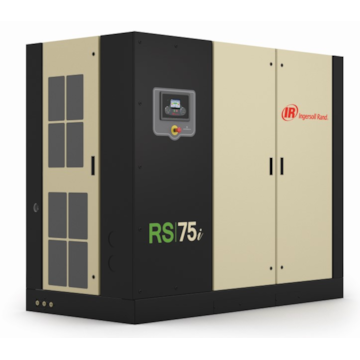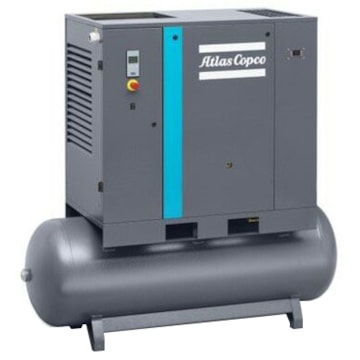Demystifying The Dilemma: Rotary Screw or Reciprocating Air Compressors
Air compressors have become a necessity for the day-to-day operations of most companies. While businesses often realize they need an air compressor, it can be very difficult to decide if they should opt for a rotary screw compressor or reciprocating air compressor — the two most popular options among consumers.
There are a number of factors to consider when making this decision. While our quick-reference guide can't possible encapsulate them all, we recommend looking it over and reaching out with any additional questions by sending an email to info@compressorworld.com
Power
Rotary screw air compressors are the preferred choice for applications that require high power output, typically considered anything above 15 horsepower. Despite being an "old school" option, its double-acting reciprocating compressors offer higher efficiency than newer builds of air compressors with design innovations and machining improvements. The power output levels of these machines can also be regulated to match the plant's power needs.
For lower power outputs, typically below 15 horsepower, reciprocating air compressors will work best. Their simple design, wide range of operation and proven reliability makes them ideal for large and small units alike. That includes use in especially harsh environments.
Maintenance
Rotary screw air compressors have been designed to make maintenance tasks easier. Most of the maintenance is restricted to its oil/air separator, filters, and oil changes. Airend replacement will also be required when the bearings fail, normally after tens of thousands hours running time.
Lubrication
When choosing between lubricated and non-lubricated reciprocating air compressors, there are a number of variables to consider. Since lubrication of the compression cylinder helps minimize the wearing of piston and cyclinder rings, reciprocating compressors last longer than the alternative.
The initial cost of both options also varies, with non-lubricated reciprocating air compressors being roughly 10% to 15% more expensive than lubricated models. Moreover, the maintenance cost of maintaining non-lubricated reciprocating air compressors is roughly four times higher than its counterpart.
Have any lingering questions ahead of your decision? Reach out to one of our experienced air compression experts by calling 866-778-6572 or sending an email to info@compressorworld.com



















